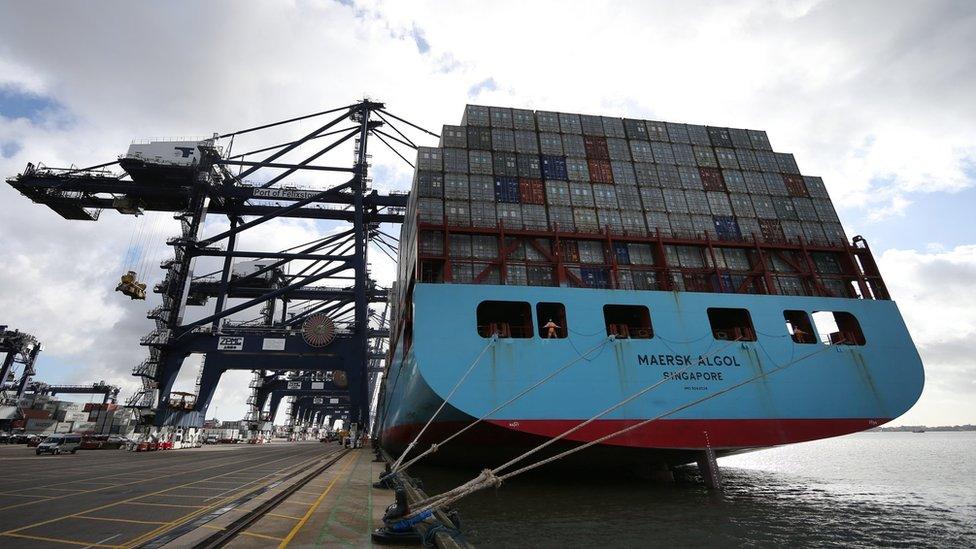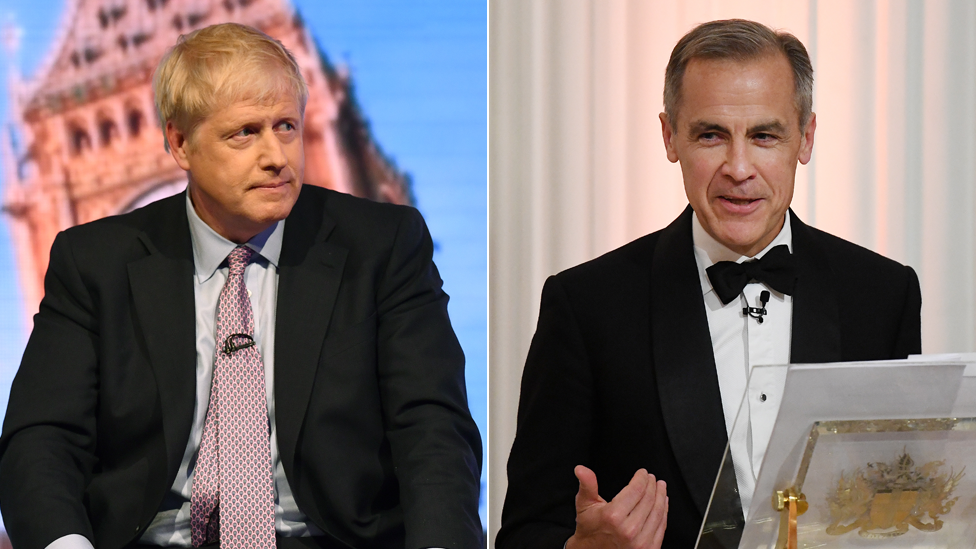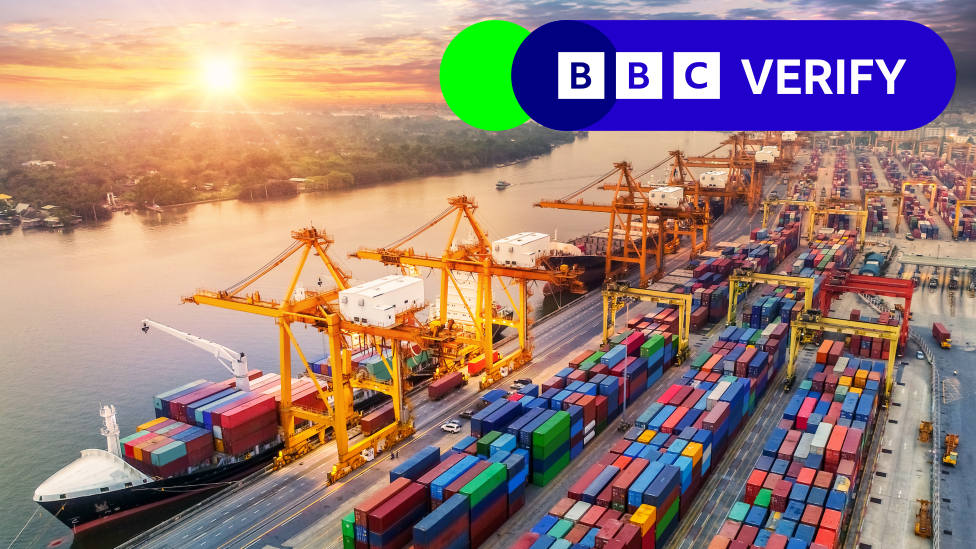Gatt 24: Would obscure trade rule help with no-deal Brexit?
- Published

A number of obscure pieces of trade law have taken on near mythical status in the Brexit debate.
One of them is Article 24 of the General Agreement on Tariffs and Trade (Gatt)., external - Article XXIV for the purists.
Supporters of a no-deal Brexit say it would allow the UK to continue to trade with the EU without tariffs (taxes on goods crossing borders) for up to 10 years, while the two sides negotiated a permanent future trade agreement.
Boris Johnson said in the BBC's leadership debate: "There will be no tariffs, there will be no quotas because what we want to do is to get a standstill in our current arrangements under Gatt 24, or whatever it happens to be, until such a time as we have negotiated the [free trade agreement]."
But Bank of England governor Mark Carney told BBC News: "The Gatt rules are clear... Gatt 24 applies if you have an agreement, not if you've decided not to have an agreement, or you have been unable to come to an agreement.
"We should be clear that not having an agreement with the European Union means that there are tariffs."
So what is this all about?
Choosing tariffs
The key point is that you need a trade agreement in order to make use of Article 24, and the EU would be under no obligation to agree anything with the UK in the aftermath of a no-deal Brexit.
In other words, if the UK leaves the EU with no deal, and therefore no trade agreement, it will not be able to use Article 24. Instead it will fall back on the basic rules of the World Trade Organization (WTO) - the building blocks of international trade.
The WTO has 164 members and each of them has a list of tariffs and quotas (limits on the amount of goods traded) that they apply to other countries.
In the event of no deal, the UK could choose to continue applying zero tariffs to goods being imported from the EU in order to minimise disruption to trade and prices.
But under rules set out in Article 1 of Gatt (which are commonly known as Most Favoured Nation (MFN) rules), it would have to offer the same terms to the rest of the world.
So what is the problem with that? If no-one had to pay anything to get goods into the UK, it would certainly mean cheaper imports. But it would also put a lot of British companies, that were unable to compete with cheap imports, out of business.
It is also worth remembering that there would be no obligation on other countries to offer the UK the same tariff-free access in return.
Need a deal
There are of course ways to bypass MFN rules and do specific deals - and this is where Article 24 comes in.
It allows countries or trade blocs to agree lower (or zero) tariff rates with other countries or blocs, if they set up a customs union or a free trade area, or if they have an interim agreement - which acts as a stepping stone to a permanent agreement in the future.

That is how international trade works, and the WTO's own database shows that 311 free trade agreements have been notified under Article 24.
This is outlined in an explainer, external from the pro-Brexit group Lawyers for Britain. But they are clear that there does need to be an agreement - it is not automatic.
The UK leaving the EU with no deal suggests there would be… well, no deal.
Or to put it in the words of Peter Ungphakorn, a former WTO secretariat official: "No deal means there is no agreement with the EU and therefore Gatt Article 24 doesn't apply."
And, to state the obvious, to have a deal, you need both sides to agree - the UK cannot invoke Article 24 on its own.
Supporters of a no-deal Brexit are betting that the EU would be keen to do a quick, basic trade deal if the UK leaves without any withdrawal agreement. But that is not what the EU itself is saying.
The EU chief negotiator Michel Barnier has said no future trade talks can begin until agreement is reached on three key issues: citizens' rights, the Irish border and the UK's financial obligations.
And EU Trade Commissioner Cecilia Malmstrom has said that the idea Article 24 could be used to avoid tariffs without an agreement was "completely wrong".
"They will have to trade with us and other countries, until there are trade agreements - and we hope that will be a trade agreement - on the 'most favoured nation' basis. And that will mean new tariffs," she said.
'Not quite as simple'
The other broad point to consider is that Article 24 applies to the trade in goods only. It has no effect on the trade in services, or on other important issues such as regulations and standards.
It has been applied to "interim agreements" only on rare occasions since the WTO was established in 1995 and never to anything approaching the scale of the UK-EU trade relationship.
Anyone looking for more detail on Article 24 could do a lot worse than read this explanatory piece from the House of Commons Library., external
It even quotes Theresa May saying: "The question of Gatt 24 is perhaps not quite as simple as some may have understood it to be."
But that may not stop it being cited as a solution on a regular basis.
This piece was first published on 13 March 2019. It has been updated to reflect comments about the use of Article 24.


- Published26 January 2024
